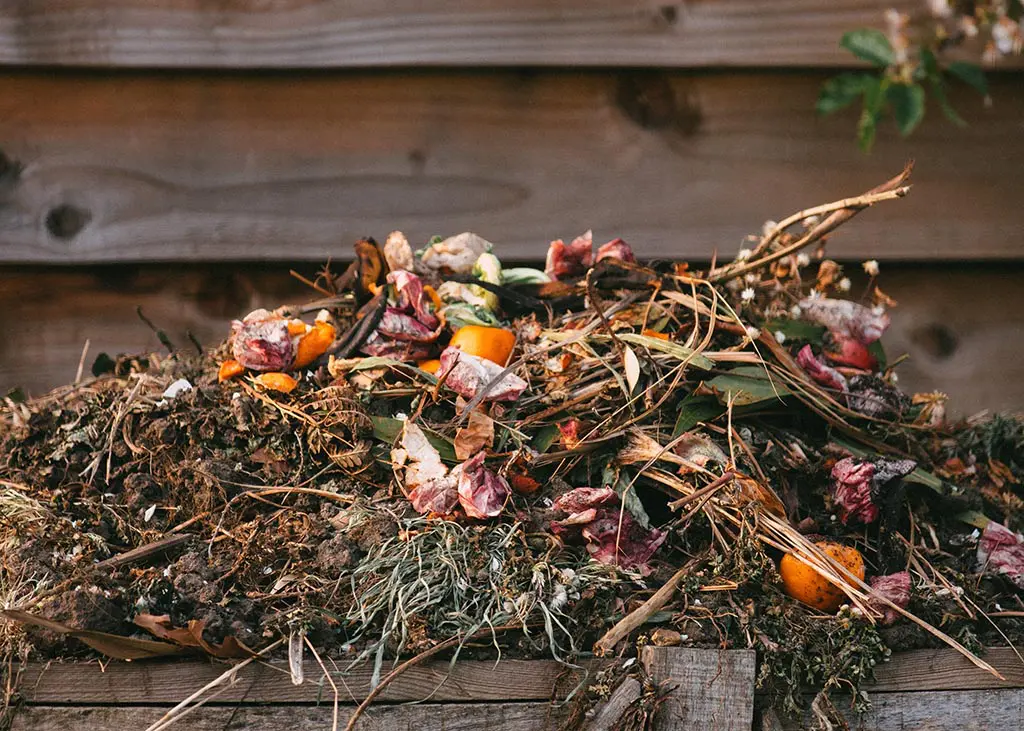What Can Go In Your Compost Bin - Tips To Help Your Garden & Keep Pests Away
Knowing exactly what to put in your compost bin can be tricky – and views differ on whether you should add items such as meat and citrus.
Composting is fairly simple, but it’s important to get it right. Otherwise, your compost mix may be too slimy or smelly, or attract vermin.

Composting is a way of doing what happens in nature, where raw organic materials are converted to soft and spongy soil-like grains. These help soil retain water and make nutrients available to plants.
DO'S
- use a couple of bottomless bins so when one is full you can start on the other, in a shady spot
- have a good mix materials to breakdown the food. Mix hay, straw, sawdust, wood-chips, leaves, weeds that have not gone to seed with food scraps and other materials fruit and vegetable peels and rinds, tea bags, coffee grounds, eggshells.
- let the temperature climb. Heat in the centre of your compost pile is a good sign, as the microbes are breaking down what you’ve put in. As the compost matures it cools, creating a great environment for worms and other microbes to finish off the process
- make sure your coffee grounds and tea bags can break down, so remove the bag before you add it to the compost pile. Moist tea leaves can help your pile break down faster. Citrus fruit (lemons, oranges), spicy peppers, onion and garlic are fine, just don’t add them to your worm farm; the worms will suffer under the acidic conditions produced when these items break down.
- get creative with natural “brown” materials – as long as there is no plastic mixed in, throw it in. This includes anything from cereal boxes to cotton balls, wine corks, fireplace ashes, and even human hair and pet fur.

DONT'S
- don’t let your compost bin be a feast for local rodents such as rats. Bury the base slightly into the ground, lining the bin with wire mesh and keeping it covered. Avoid adding meat scraps, cooking fats and oils, milk products and bones, which will attract vermin
- don’t let your compost get stinky or slimy – that means it’s too wet. Slimy compost means you need to add more “brown” materials. You can also speed things along by having a dig through the heap every week or so, or adding extra bits and pieces at various stages (chook poo, crushed rock and lime) to help it all happen faster
- don’t let nasty chemicals and germs get into your compost. This includes things like treated wood waste, pet waste (if they take medication or eat meat) and sick plants. Home compost bins are limited in what they can process. It is a good idea to wear gloves as an extra safety measure.

THE BENEFITS OF COMPOSTING
Making compost at home doesn’t just lighten our rubbish bin and help our gardens. It also helps tackle climate change.
Each year in the UK, food waste rotting in landfill created methane equivalent to around 6.8 million tonnes of carbon dioxide. If global food waste were a country, it would be the third-largest emitter of greenhouse gases in the world, behind the United States and China.
So clearly, there are many great reasons to compost. And by following a few simple rules, you too can create your own “black gold”.


